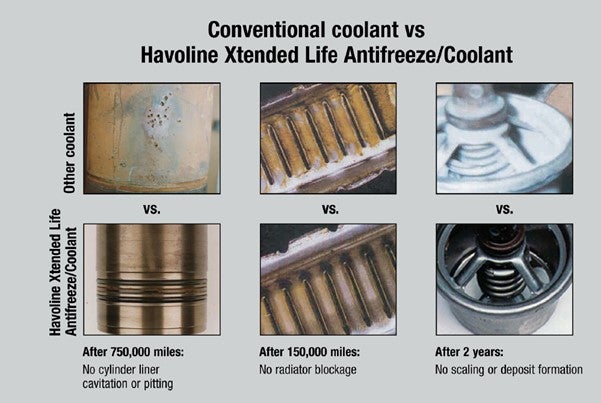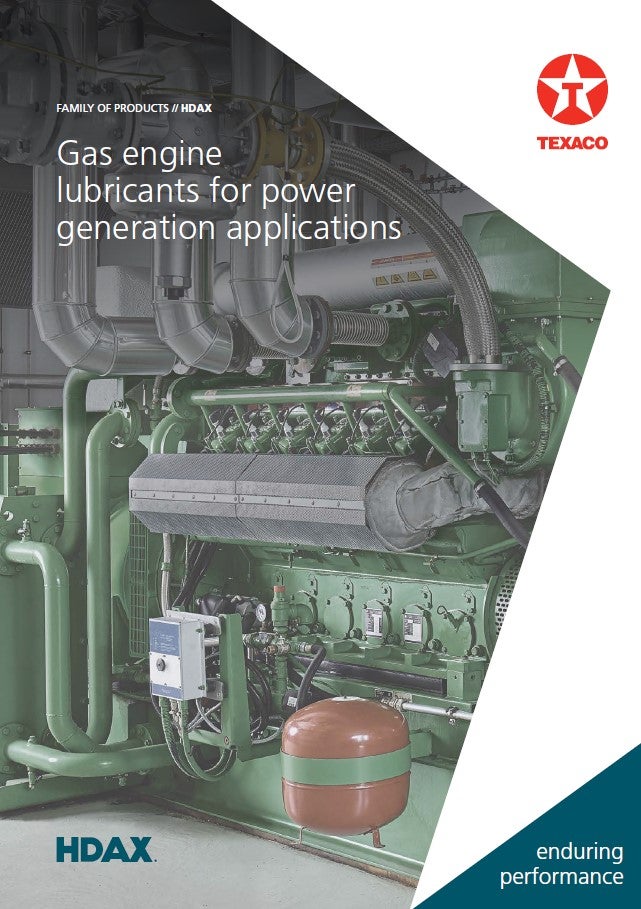
A gas engine is subject to extreme pressures and temperatures, much higher than those of an internal combustion engine, which can cause a number of problems. Heat management is crucial, which is why it is important to pay special attention to the coolant used in gas engines, to ensure long-term protection of your CHP units.
Michael Guelck, Lubricants Business Developer at Texaco Lubricants, and an international gas engine specialist for over 30 years, explains the role and capabilities of this product.
Gas engines – subject to extreme heat
A gas engine can suffer from a variety of temperature and pressure-related problems. This is due to the nature of the fuel itself. Compared to a diesel vehicle engine, when the piston of a gas engine moves upwards there is still a mixture of air and fuel in the combustion chamber which continues to burn. Gas burns much more slowly than diesel, so the heat impact on the piston walls is much greater. In addition, the pressure produced in the combustion chamber of a gas engine is about four times higher than in a car engine. It is therefore easy to imagine the importance of good engine temperature management. This requires the use of a high-performance coolant.
Which coolant should I choose?
There are various types of coolant, including products with and without silicate. Silicate coolant provides a protective layer throughout the engine’s cooling system, which creates good insulation but has the disadvantage of reducing heat transfer. In gas engines, one of the major needs is to control the engine temperature. Another disadvantage of coolants containing silicate is that they cause sludge deposits that foul parts of the engine, impair performance and can lead to unscheduled downtime and repair costs.
Some silicate-free coolants use Organic Acid/Additive Technology (OAT). This is the technology used in Texaco Delo XLC Antifreeze/Coolant. The difference with silicate technology is that it forms a layer on the whole of the metal surface, whereas OAT does so only on those parts vulnerable to corrosion.
Texaco Delo XLC Antifreeze/Coolant, helps the surfaces to remain cleaner, and therefore helps the heat transfer to be optimised. Texaco Delo XLC Antifreeze/Coolant is available in concentrated, premixed 50/50 and premixed 40/60 versions. It is a high-performance, silicate-free product that is designed to offer long, low service maintenance service life when the manufacturer’s maintenance recommendations are followed.





